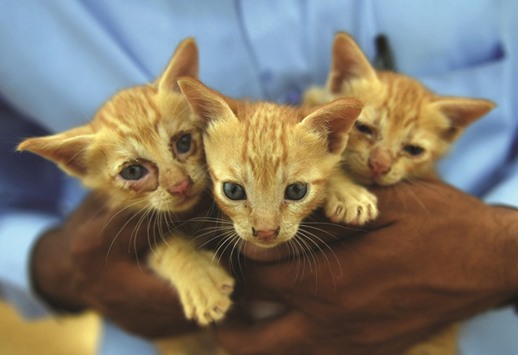The battered residents of the Edhi Animal Home, just outside Karachi along Pakistan’s gleaming new Super Highway, are a pitiful sight.
Paralysed cats that have been crushed beneath speeding vehicles, sit alongside exhausted donkeys too weak to carry another burden, and dozens of wounded or abandoned dogs.
Most face a return to the streets once they recover.
Yet these canines are the lucky ones — escapees from the most recent wave of mass poisonings by authorities working under 19th century municipal laws that allow them to cull feral dogs in Pakistan’s biggest city.
Animal rights are at their nadir in Karachi, but a handful of activists and veterinarians are fighting to find a middle ground between stray dogs and a population that finds them “putrid”.
Last month the carcasses of dozens of dogs lay in the sweltering heat at one of the city’s biggest roundabouts waiting to be coldly disposed of by bulldozer, poisoned in yet another culling campaign.
“We have got numerous complaints of dog bite cases in the city where the children were the worst victims,” said Maqsood Memon, a senior health officer at the southern District Municipal Corporation (DMC). In at least one case reported in the nearby city of Hyderabad, he claimed, dogs “tore a child apart”.
Conservative figures estimate the feral dog population of Karachi could number up to 35,000.
The city sees as many as 15,000 dog bite cases every year, says Dr Isma Gheewala, head of the Animal Care Centre in Karachi’s posh Defence neighbourhood.
“This is our psyche, that when we see a dog we throw a stone at it or children chase it,” she says. “When you would treat (a dog) with aggression, so its reaction could be aggressive, and this aggression could cost you much.”
Municipal laws allow authorities to either poison or shoot stray dogs. But poisoning is hardly targeted and, as Dr Gheewala pointed out, shooting is not always effective.
“Quite often animals do not die after the shooting so they bring such animals to us as well,” she says.
Even if it were 100% effective, culling is not a “proper solution”, says veterinarian Dr Khalid Memon, who works with the Edhi Foundation.
“If you want to control the population, you just bring them to be neutered,” he says.
Last year three organisations came together to do just that, launching a service that Pakistanis familiar with the sight of ambulances from the Edhi Foundation, Pakistan’s biggest welfare organisation, racing to disaster would recognise.

Veterinarian Khalid Memon, who works with the Edhi Welfare Foundation, holds sick cats at the Edhi Animal Home on the outskirts of Karachi.
